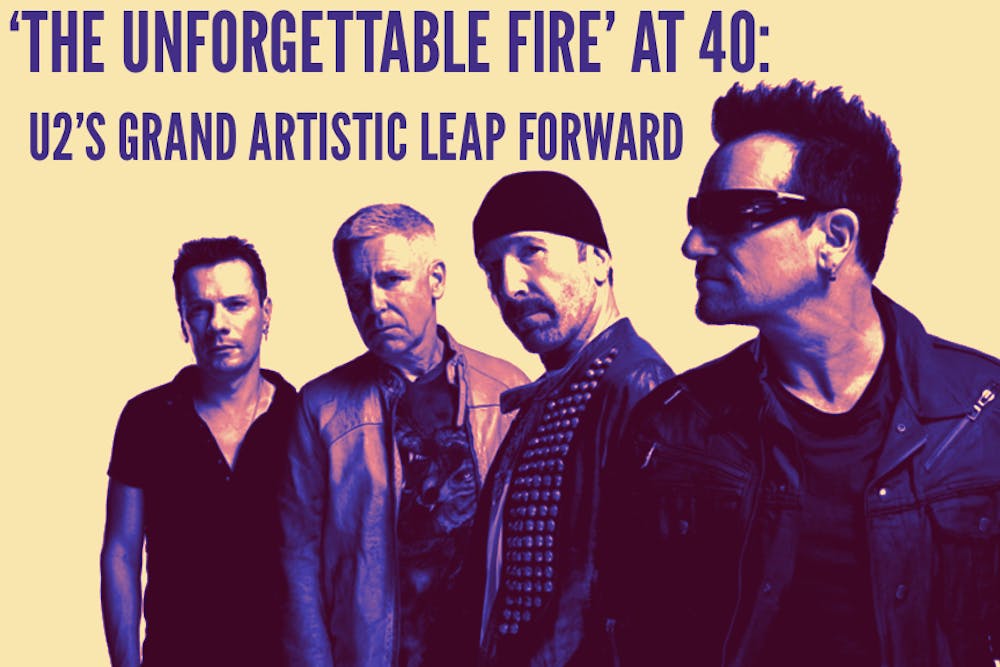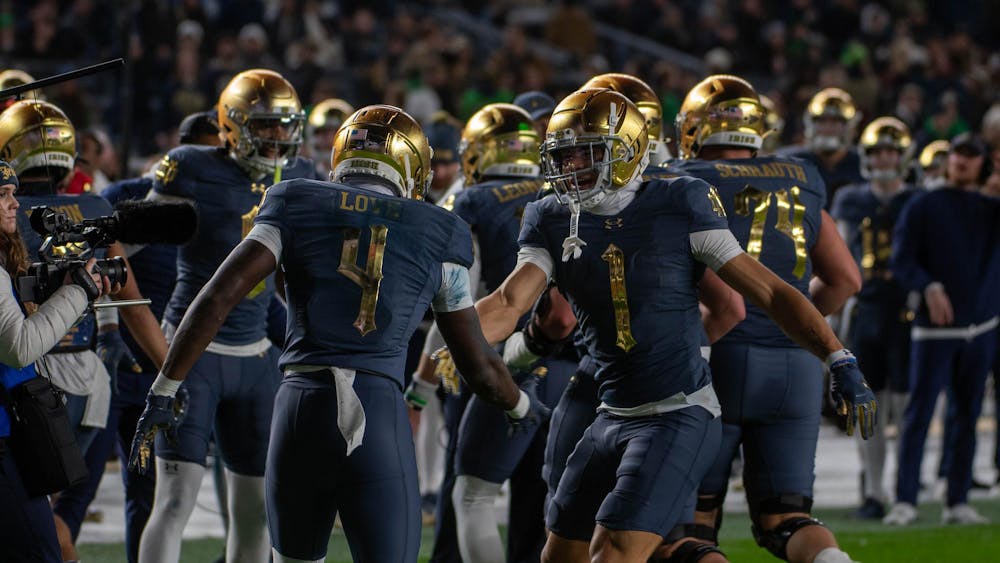There isn’t a greater burden in this material reality than being a young U2 fan in 2024. Even though they were once beloved by audiences and critics alike during their peak in the '80s and '90s, they are now a pariah amongst younger generations. Subsequently, they haven’t been granted the same retro revival as other rock bands, so while you may see Nirvana shirts in Urban Outfitters and Metallica songs in "Stranger Things," U2’s modern presence has been relegated to your father’s old CD collection. Why is this? Why has U2 been left behind? Are Zoomers stupid?
Regardless of the reasons, I’ve grown tired of modern U2 snubbing. I’ll take matters into my own hands and single-handedly start the U2 revival. Lucky for me, there couldn’t be a more perfect opportunity for this goal than celebrating the 40th anniversary of their breakthrough album, “The Unforgettable Fire.” Before this album’s release, U2 was primarily a domestic phenomenon in Ireland, and their music heavily borrowed from punk aesthetics. However, Bono and the gang wanted to radically change their sound for their fourth album. Thus, they boldly hired ambient musician/producer Brian Eno, known for his work on Talking Heads’ masterpiece “Remain in Light.” U2’s interest in Eno shocked both their label and Eno himself, for they thought Eno was too avant-garde for their arena rock sensibilities. However, U2’s sheer enthusiasm for working with Eno won over both parties. After also bringing in producer Daniel Lanois and a 2-month recording period full of crunch and stress, “The Unforgettable Fire” was released on 1 Oct. 1984.
“The Unforgettable Fire” was a transformative release for the band; it’s the cohesive, ambitious work of a band that had finally achieved artistic maturity. The opener, “A Sort of Homecoming,” sets the tone for the album with an atmospheric soundscape of hazy guitars and polyrhythmic drums. Gone was the rawness of “I Will Follow”; U2 was now interested in ambient rock that twisted and turned through lush production. The following track, “Pride (In the Name of Love),” is one of their most famous songs, and for good reason. The Edge’s guitar riff is utterly brilliant; the tone, the rhythm, the texture and the chord progression all come together to make something truly exceptional. And then Adam Clayton’s propulsive bassline and Bono’s soaring voice make the song even more sublime. Yes, it’s overplayed, but as is the case with most overplayed songs, it became overplayed for a reason: it’s a great song. It’s probably the most succinct distillation of what makes U2 so special.
The next song, ”Wire,” is one of the album's most stark moments. It’s a fast-paced, anxious track with frantic guitars and funky grooves. Bono even starts scatting towards the end. The following titular track has a diverse arrangement of synthesizers and strings that coalesce into gorgeously mellow songs. By this point in the album, it’s clear Eno and Lanois handling production was a genius decision. They helped U2 create much richer soundscapes and complex arrangements while preserving the band’s brilliant interplay and songwriting.
The album’s time crunch becomes apparent in the second half, as tracks like “Promenade” and “4th of July” barely cross the two-minute mark, and the latter is a purely instrumental track. Nevertheless, they’re still pleasantly gentle listens and showcase U2's further embrace of their new atmospheric sound. Moreover, there are some great deep cuts, like the fun Talking Heads pastiche “Indian Summer Sky.” However, the true highlight of the second half and arguably the entire album is the show-stopper, “Bad,” which many consider the greatest U2 song ever. It’s an immensely cathartic song; Bono’s poignant lyrics capture the turmoil and instability of addiction, and its slow build-up reaches a stunning, passionate crescendo by the end. Even though I’ve listened to the song countless times, I’m still enraptured by Bono belting that final “I’m Wide Awake” over Adam Clayton’s excellent drumming.
U2 would go on to make more commercially and artistically successful albums, but “The Unforgettable Fire” is the band’s first great album. By collaborating with unorthodox producers who challenged and expanded their musicianship, they finally became a singular band creating gorgeous, lush rock full of spirituality and heart.










